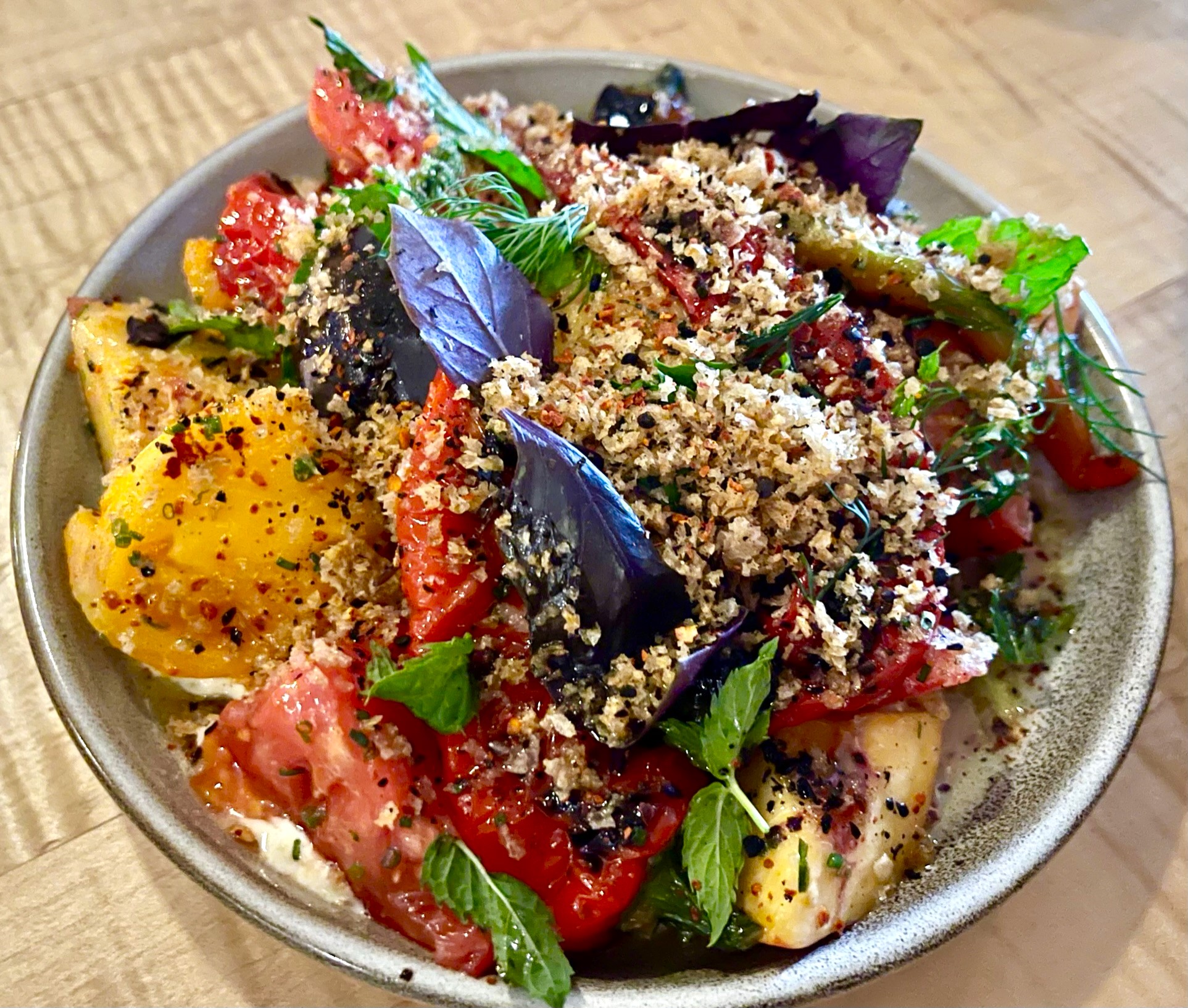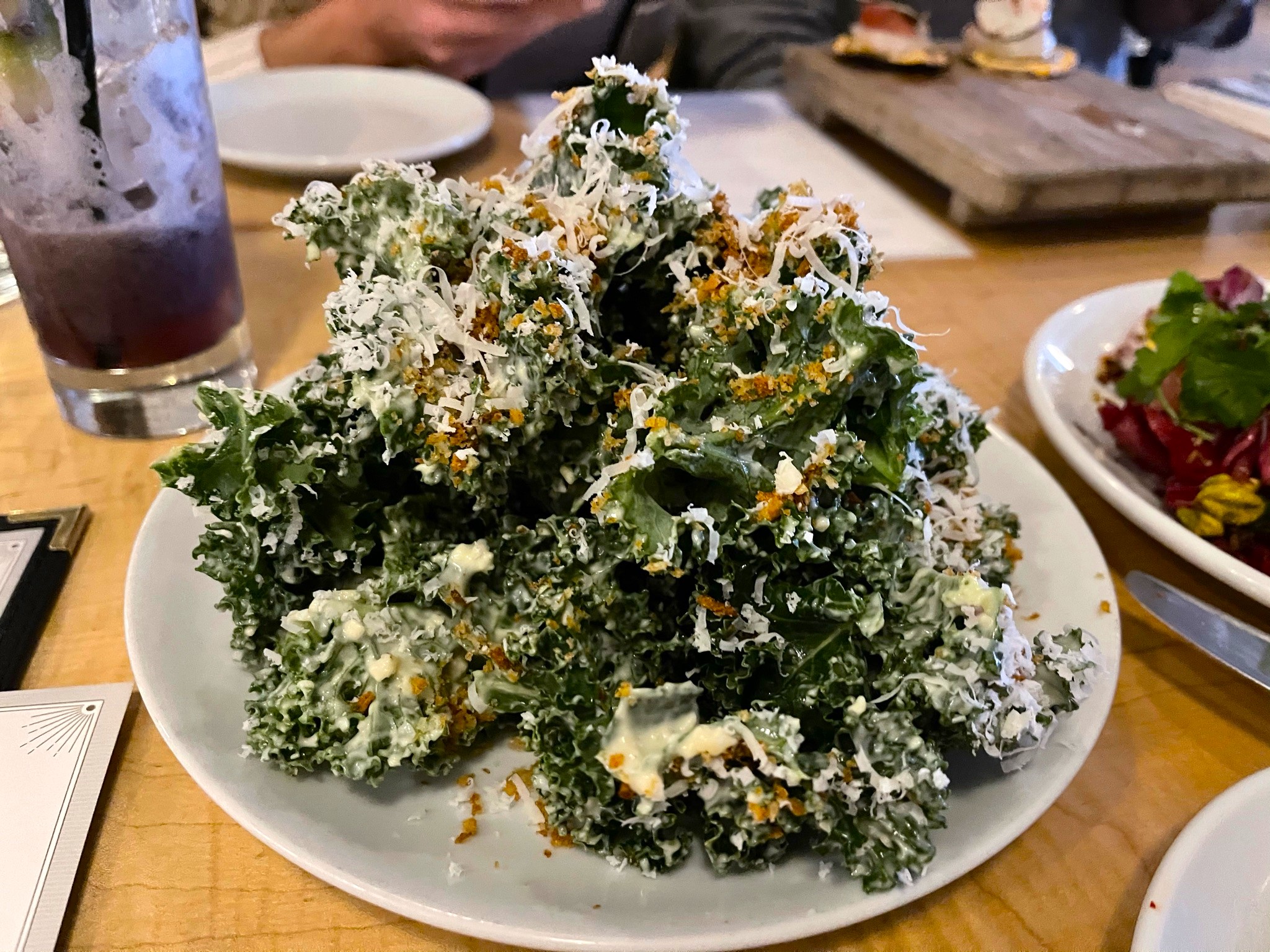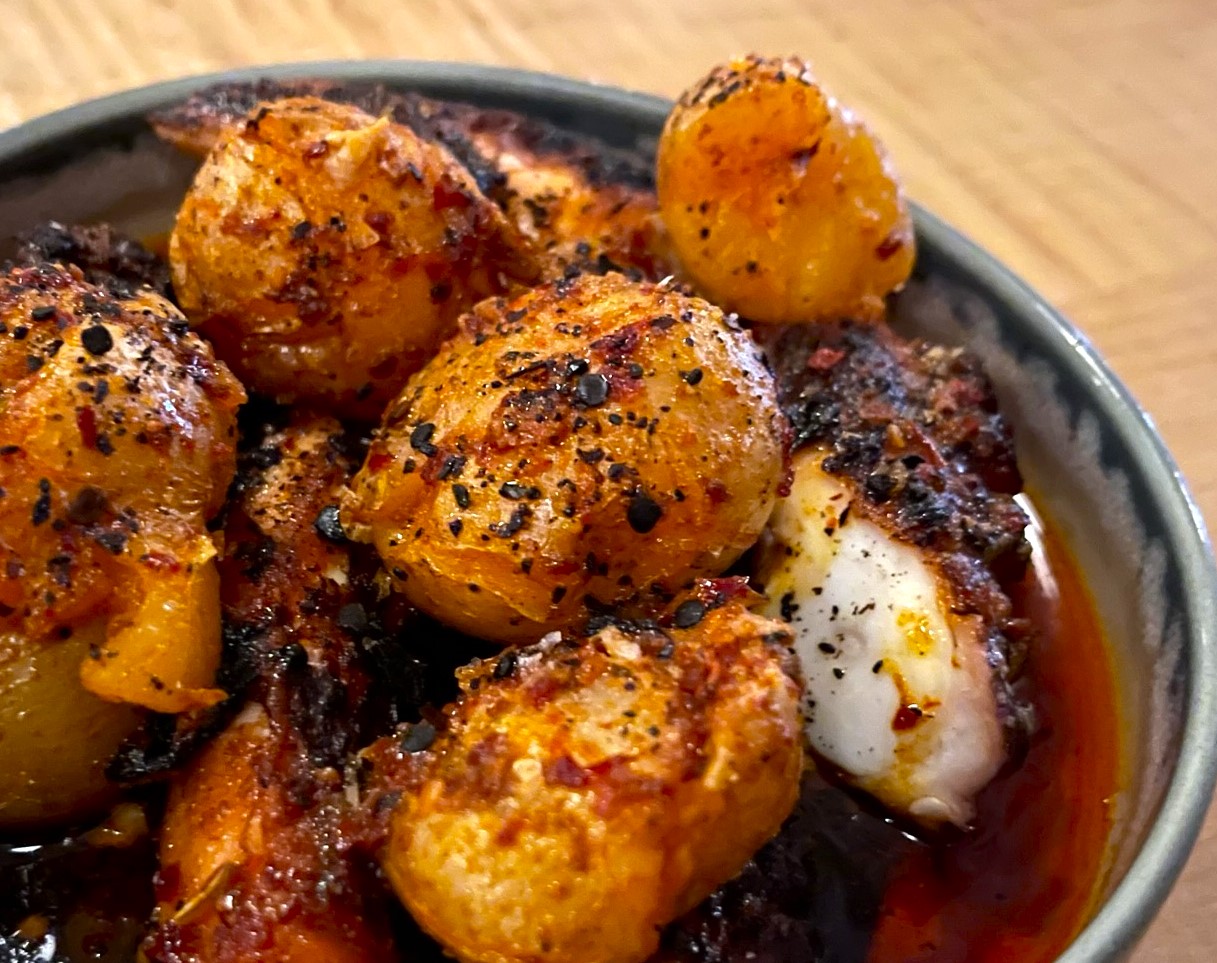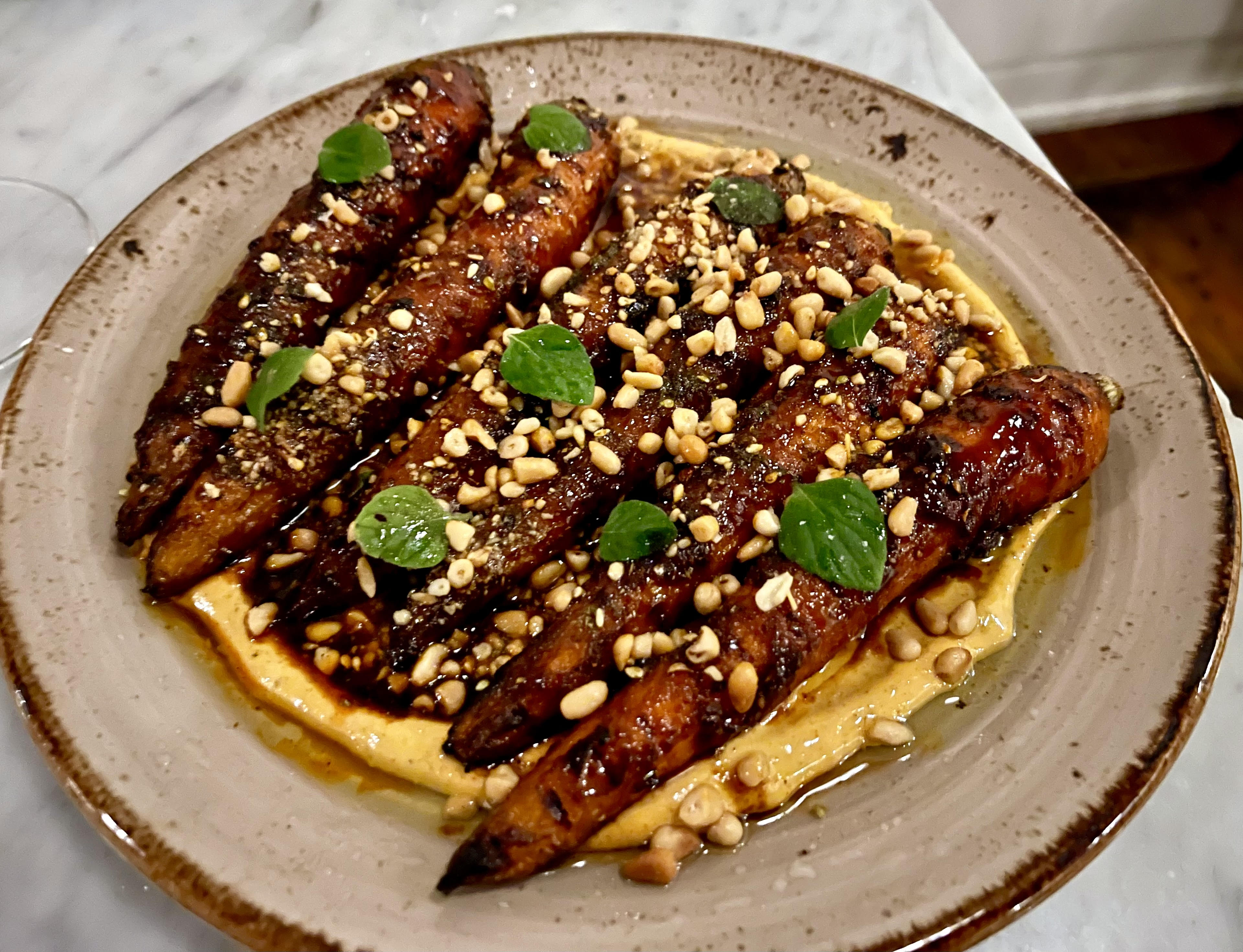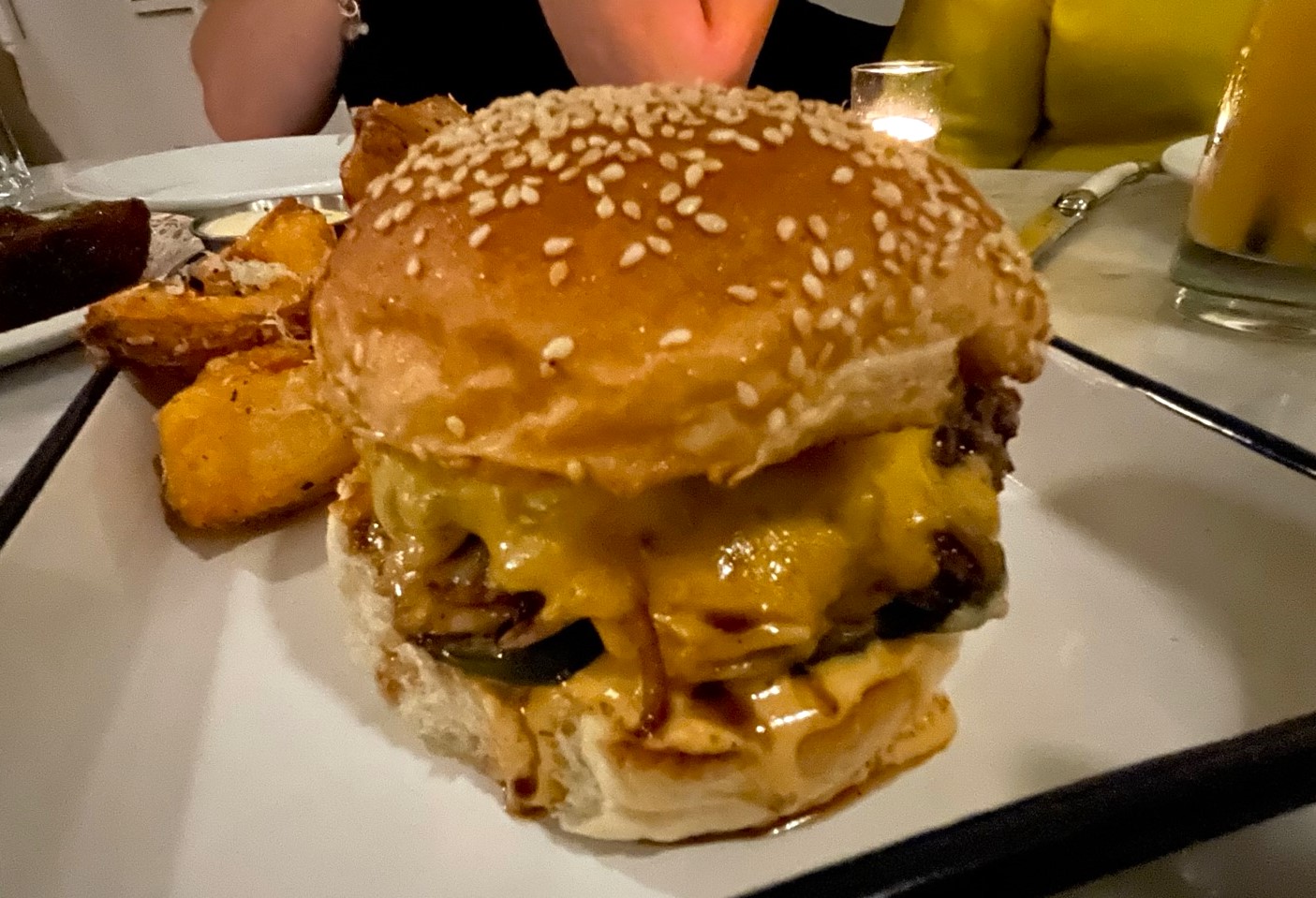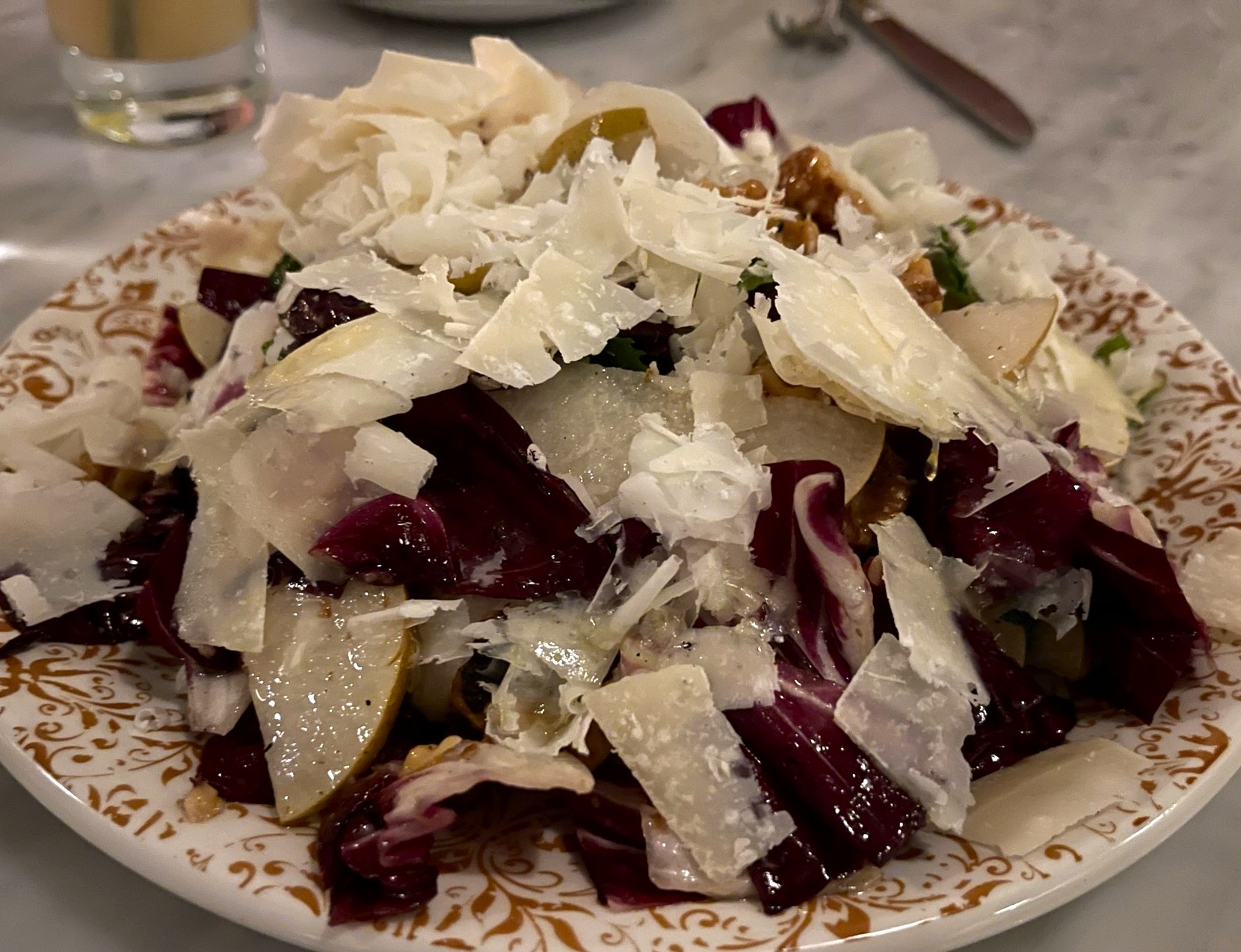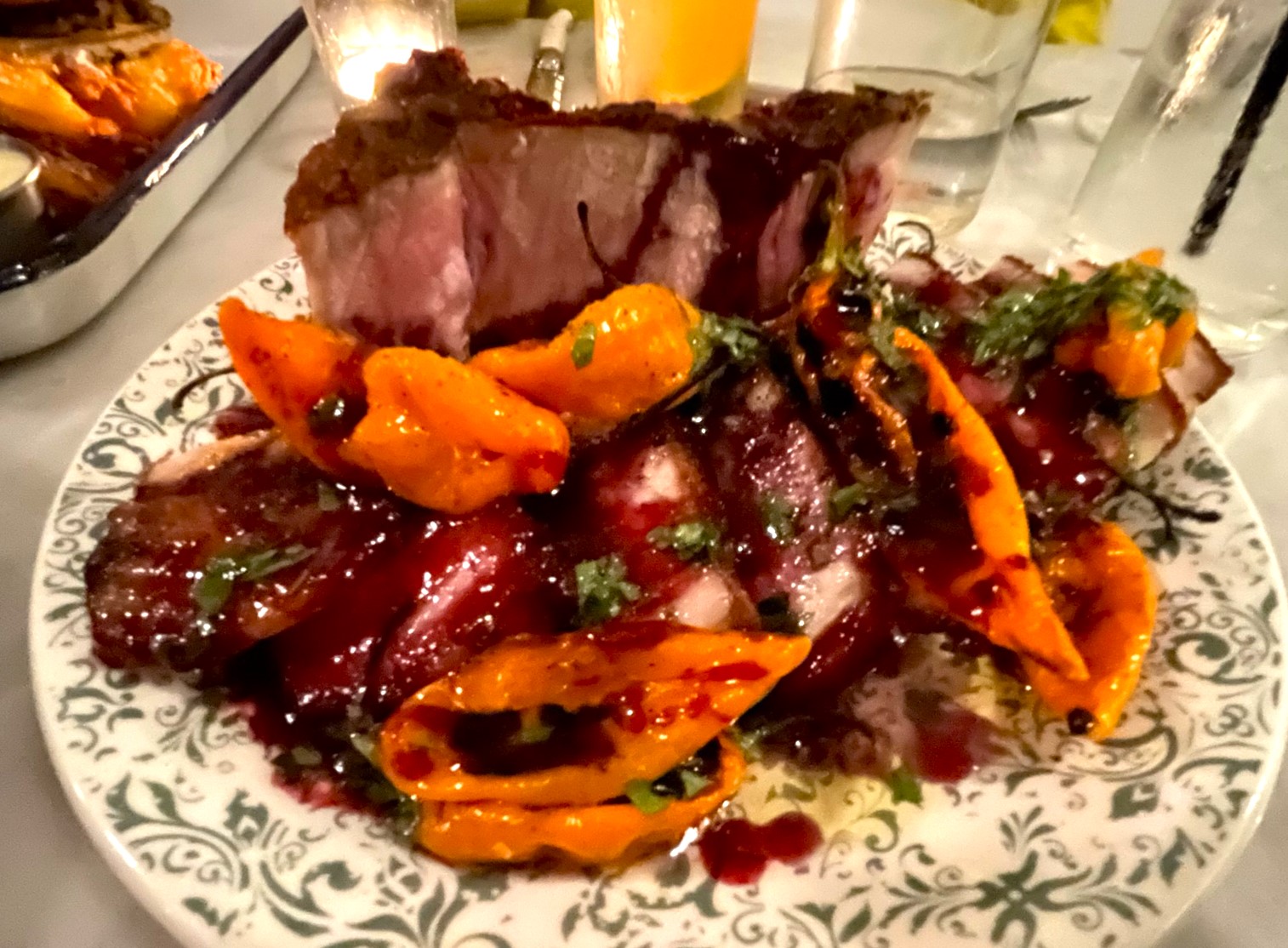Counting my blessings for first-rate cooking plus a place that could change the restaurant game
Summary: This Hamburg all-day restaurant has the dishes and the people other restaurants can only dream of, strong support for the notion that happy workers make better food.
As a professional question answerer specializing in restaurants and other sources of edible joy to be found in Buffalo and environs, the most frequent query I get is: What’s your favorite restaurant?
I used to shrink from that question like a salted slug. To declare a champion is to label everyone else second-best, at best. Among friends with children, when feeling a bit spiky, I have been known to return the lob: “Which of your kids is your favorite?”
That was not fair, of course. As a critic, you need to have an answer, because that’s what critics do: argue for the best, by defining excellence and raising your voice to support its growth.
Grange Community Kitchen is my favorite restaurant in the area, because it not only presents first-class eating opportunities built on local seasonal produce, long-established relationships with local suppliers, and a deft touch with appropriate world cuisine framings, it does so all day, breakfast, lunch, and dinner.
Few of the other top places can manage lunch and dinner, most just dinner. Why? Lack of qualified staff.
Why does the Grange operation have enough qualified people? Not just for the flagship Grange, which restored a former agrarian grange hall to another era’s community center. Enough hands to run West Rose, a restaurant and bar in Ellicottville’s ski bum area, Grange Outpost, a bakery and breakfast sandwich outlet in Orchard Park, and most recently Wayland Brewing Company, a brewery-restaurant in Orchard Park.
Because when veteran restaurant workers Brad Rowell and Caryn Dujanovich opened their first restaurant in 2016, they decided to make the kind of place they wanted to work. The terms are more human-oriented, with the aim to keep workers who also want to be able to have a child or enjoy predictable days off. Sous chefs can start at seven days vacation, plus seven days personal paid time off. Ask any restaurant workers of your acquaintance if they know of anyone with a better benefit package.
Rowell told me they do it because it feels right, but it pays off. They encourage any employee to bring any issue to them, because fixing things that might make workers want to leave is a priority.
The result is that talented veterans like Mike Thill have returned to work for Grange after other forays didn’t work out. These are chefs who could have accepted numerous offers to helm restaurants for groups or individual investors. But they came back to work for Grange, because that way they could have a life, too.
Now Thill runs Wayland Brewing Company’s kitchen, and every worker in the Grange program can see that sometimes hard work is rewarded with more than just a paycheck. Pastry chief Jenn Batt could jump for a hefty paycheck in a heartbeat, since the market for manager-bakers is even hotter. Grange made Rowell’s longtime lieutenant Anthony Petrilli a partner in West Rose, the restaurant he runs, out of straight-up accumulated sweat equity.
When every dish dog can see the potential of hard, principled work, that sweat equity can lead to ownership, the game can change. The Grange model’s example will hopefully spread sporelike to kitchens elsewhere, through the eyewitness testimony of workers who can answer the question of whether a restaurant that caters to its workers can thrive.
Manuel Ocasio, for example. His restaurant career started as a dishwasher at Aroma, at the invitation of his mother Kimberly Ocasio, a server. He joined The Black Sheep kitchen at 18, working with Steven Gedra.
Seven years later, Ocasio runs the kitchen at Grange Community Kitchen, returning to take charge after stints with nationally respected restaurants like Manresa, which earned Michelin’s top rating of three stars, Jean-Georges, and Zahav, Philadelphia’s Israeli icon, under star chef-owner Michael Solomonov.
Ocasio is 25. And the Grange is better than ever.
He is a vocal proponent of the Grange model of restaurateurship, which puts investing in workers on an even level with profit-seeking. Without the foundation Rowell and Dujanovich built, the work culture they invested in and backed up with people-focused flexibility, Ocasio would be cooking elsewhere.
Instead of delving into dish description, this inaugural free-form review will debut an experiment. Please let me know how you feel about this review approach, one way or the other, if you feel like sharing your opinion. Being OK with it is an option, too.
This time, I’ll offer you the best dish photographs I could manage, with the menu description as the caption. I will include two images that would never have seen the light of day under the old format. They’re blurry in crucial places. They represent epic dishes, so they get a pass.
For years I’ve pondered how necessary all the taste sensation work was, really. This experiment will help sharpen my calculations.
There is an ending paragraph, however. I would feel naked without one. If you get fed up with the blizzard of photographs, please accept my apologies and scroll down to the end for the closer.
The only thing I don’t like about Grange is the dim lighting in the evening in the back of the dining room. But that is entirely a photography issue, not a comfort issue, because it contributes to the cozy atmosphere.
There are enough fancy restaurants with $40 entrées where the Instagram pictures are the best part of the meal. The Grange has other fish to fry.
GRANGE COMMUNITY KITCHEN
22 Main St., Hamburg, 716-648-0022
Hours: 4:30 p.m.-9 p.m. Wednesday, Thursday, 4:30 p.m.-10 p.m. Friday, 9 a.m.-2 p.m., 4:30 p.m.-10 p.m. Saturday, 9 a.m.-2 p.m. Sunday. Closed Monday, Tuesday.
Prices: small plates $14-$18, large plates $20-$34
Parking: street
Wheelchair accessible: Yes
Gluten-free: salads and carrots, minus breadcrumbs
Outdoor seating: in season
#30#

